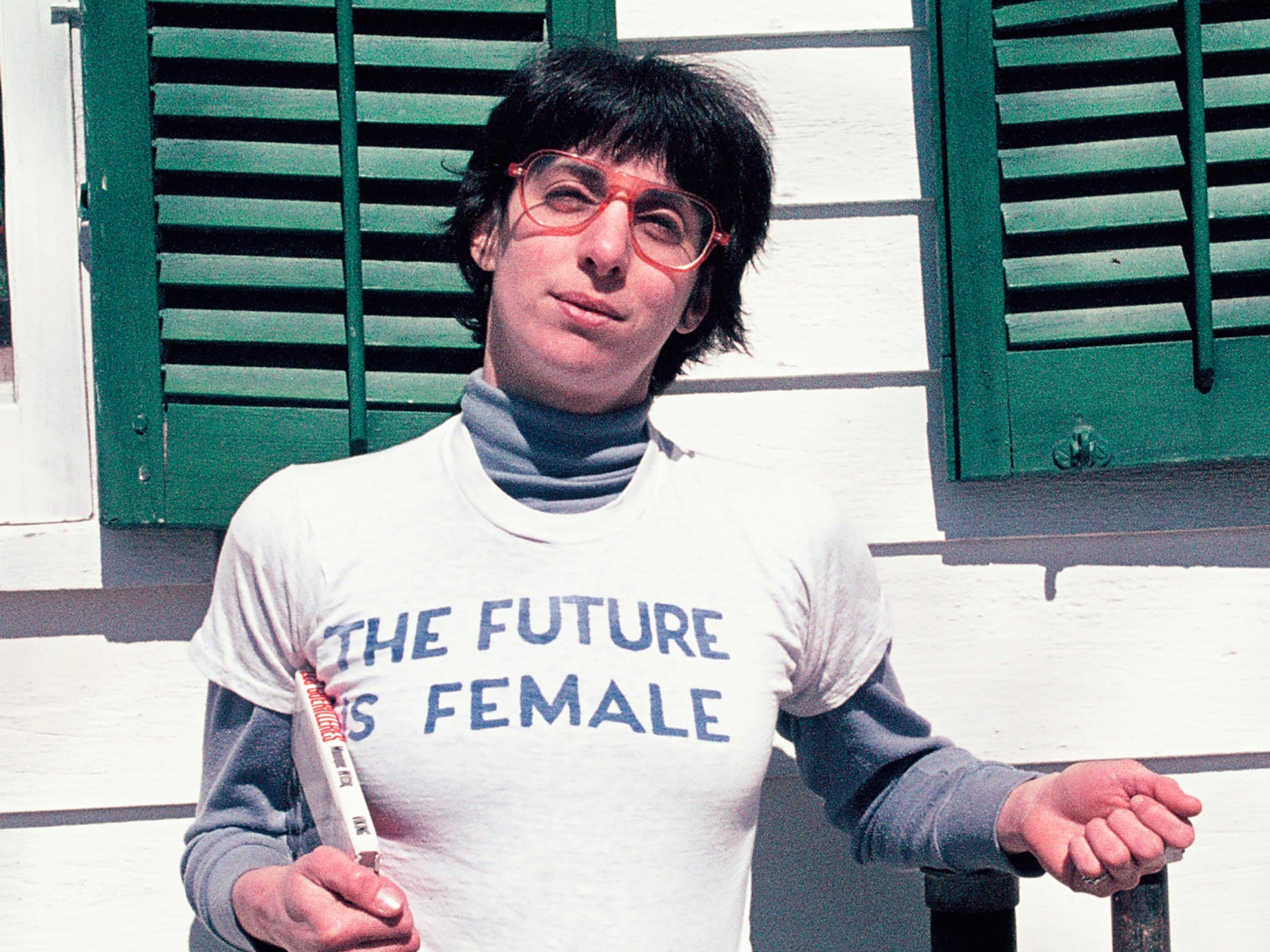Alix Dobkin: Groundbreaking lesbian activist and feminist folk singer
The musician’s work, including ‘Lavender Jane Loves Women’, was a cult hit among lesbian women and inspired a generation to come out

Alix Dobkin, who has died following an aneurysm and stroke aged 80, was an American folk singer-songwriter who was dubbed “the head lesbian” by her fans and admitted to being homophobic before becoming a feminist – as a result of joining a consciousness-raising class after hearing Germaine Greer talking on a radio show.
“I had done everything I was supposed to,” the performer who served her apprenticeship in New York’s Greenwich Village along with other folkies such as Bob Dylan and Buffy Sainte-Marie told Curve magazine in 2010. “I got married. I had a baby. I had proven myself…
“Consciousness-raising made me a feminist and it really initiated my loyalty to women, and strengthened it, and then everything that followed reinforced that. It gave me permission to come out … it gave me politics, it gave me a context, it gave me a reason.”
After leaving her husband and entering a relationship with New York radio host Liza Cowan in 1971, Dobkin teamed up with flautist Kay Gardner to form the group Lavender Jane.
Their 1973 album, Lavender Jane Loves Women, with songs such as “The Woman in Your Life Is You”, “Talking Lesbian” and “A Woman’s Love”, was a revelation, the first out and proud, by-lesbians-for-lesbians LP and reputedly the first to be made entirely by women – musicians, producers, sound engineers and vinyl pressers.
Toni Armstrong, editor of Hot Wire, a magazine launched later and dedicated to women’s music and culture, observed that Lavender Jane “used musical and lyrical machetes to cut through the forests of misogyny and pervasive anti-lesbian culture”.
Dobkin struck out on her own to continue performing what she described as “music by, for and about women” with the release of Living with Lesbians (1975), which also established her as sole producer of her own work.
The title track was autobiographical in its tale of savouring the rural life with her daughter and Cowan, her “sweetheart”. She sang: “There are lesbians over in the valley/ further south, in the mountains more/ they are making their lives with women work.”
XX Alix followed in 1980 and These Women/Never Been Better – for which she even wrote a rap song – six years later. There were also compilation and live albums.
Alix Cecil Dobkin was born in New York in 1940 to Martha (nee Kunstlich) and William Dobkin, fundraisers for Jewish organisations, and named after an uncle, Cecil Alexander Kunstlich, executed by a firing squad while he was fighting against the fascists in the Spanish Civil War.
The title of her 2009 autobiography, My Red Blood, was a reference to her parents’ – and, later, her own – membership of the Communist Party, and her musical education was a mix of the Red Army Choir, folk legend and political activist Woody Guthrie, Louis Armstrong and Rodgers and Hammerstein.
After attending Germantown High School, Philadelphia, she gained a fine arts degree from Tyler School of Art, at the city’s Temple University, in 1962, then started singing and strumming her acoustic guitar in Greenwich Village’s coffee houses.
She married Sam Hood in 1965 after meeting him at the Gaslight Cafe, a folk music venue that he managed. Together, they ran a Florida branch of the Gaslight and opened The Elephant in Woodstock, New York.
Their daughter, Adrian, was born in 1970, but the marriage was over by the time Dobkin came out as a lesbian two years later. Only shortly before this had the FBI taken her off their radar, on the basis that she was a housewife and mother.
She formed her own label, Women’s Wax Works, to release Lavender Jane Loves Women and inspired a generation of others to come out – a rite of passage spoofed by Alison Bechdel in her syndicated newspaper comic strip Dykes to Watch Out For.
Dobkin made a point of appearing almost exclusively at feminist events and women’s conferences and festivals such as Michfest, in Michigan, whose declared intention was to admit only “womyn-born womyn”, a controversial policy excluding transgender people. Dobkin’s own insistence on barring them from women-only spaces brought criticism from some of her original allies.
Being Jewish was as important to her as being a lesbian and feminist, so she would always perform a Yiddish song when performing live.
Although she and Cowan bought a 70-acre farm outside New York, the relationship eventually ended and, by the Nineties, her touring schedule had slowed down.
A new generation was introduced to Dobkin’s seminal recordings when, in 2015, a photograph appeared on Instagram, taken by Cowan in the 1970s, of her wearing a T-shirt bearing the slogan “The Future Is Female”.
Dobkin’s daughter survives her.
Alix Dobkin, folk singer-songwriter, born 16 August 1940, died 19 May 2021


